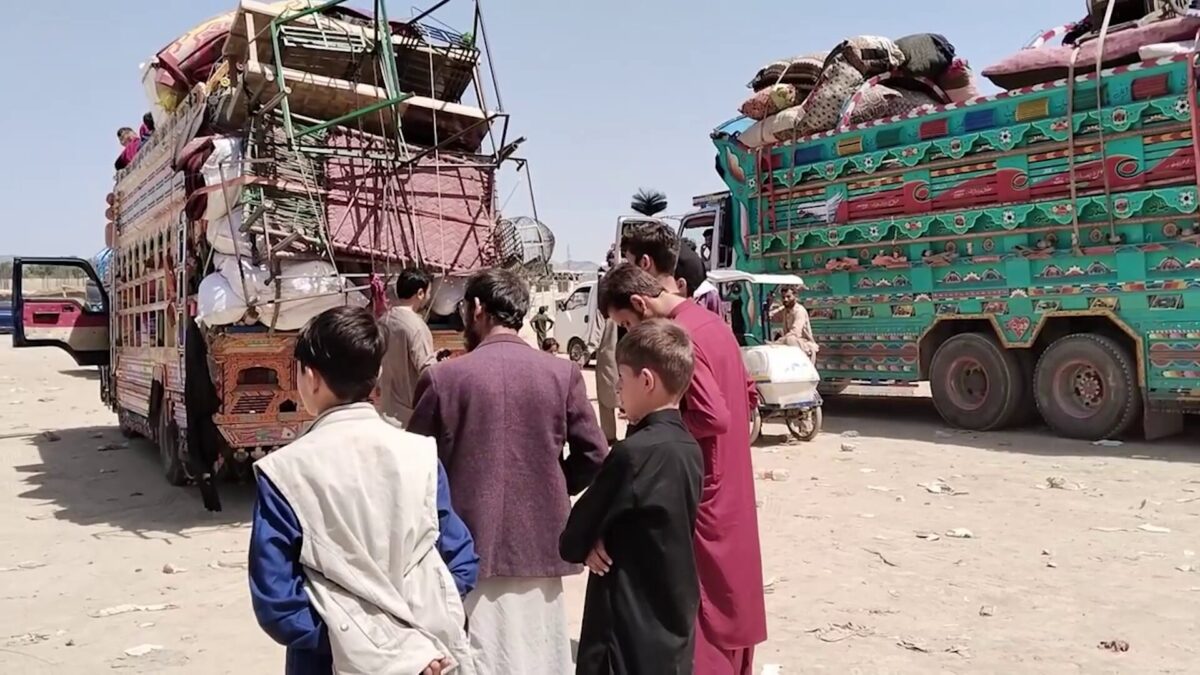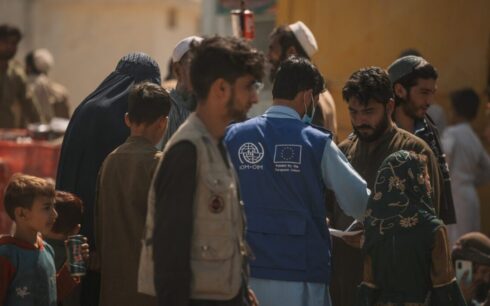Kabul, Afghanistan — Nearly 50,000 children crossed into Afghanistan from Pakistan in the first 16 days of April, following the expiration of a deadline for undocumented Afghans to leave Pakistan, Save the Children said in a report on Friday.
The surge forms part of a broader wave of returnees, with about 84,000 people crossing the border in recent weeks. Since September 2023, approximately 940,000 Afghans — including 545,000 children — have returned from Pakistan. Children account for 58 percent of the returnees, with one in five under the age of five, according to Save the Children.
Aid workers have warned of mounting risks for the children arriving in Afghanistan, where displacement, poor infrastructure and a deepening humanitarian crisis are straining already limited resources. Save the Children is providing health care, nutrition support and sanitation services to new arrivals at a reception center in Kandahar Province.
Many of the children arriving face the dangers of separation from their families, malnutrition, and exposure to highly contagious diseases such as diarrheal illnesses and respiratory infections, the organization said.
Omer, 30, an Afghan father of five who was born and raised in Pakistan, described the ordeal of returning to a country he barely knows.
“I still cannot believe what has happened. I have lost everything overnight,” he told Save the Children. “When I crossed into Afghanistan, I came empty-handed. The only things I managed to bring were my children’s clothes, a few blankets and some basic kitchen utensils.”
“I have no relatives here except one sister who is also living in a rented house. I have no home, no place to go. The only thing I could think of on the way here was: where will I take my family? It has been overwhelming.”
Omer said he lived his entire life in Pakistan and now feels “like a stranger” in his own homeland.
A Save the Children survey conducted earlier this year found that nearly half of Afghan families returning from Pakistan said no jobs were available to them, and 81 percent of respondents said they did not have the skills necessary to find work. Nearly two-thirds of school-age children were not enrolled in school upon returning to Afghanistan, largely because they lacked the documents needed to register. In Pakistan, most of these children had been attending school.
Afghanistan now has one of the largest internally displaced populations in the world, with roughly one in every seven people displaced — a number expected to rise further as deportations from Pakistan and Iran continue.
The United Nations estimates that nearly 23 million Afghans — almost half the country’s population — will require humanitarian assistance this year. Around 15 million people are facing acute food insecurity, including 3.5 million acutely malnourished children, and more than 14 million have limited access to health care.
“The return of so many people is creating an additional strain on already overstretched resources, and this new wave of refugees comes at a time when Afghanistan is starting to feel the brutal impacts of aid cuts,” said Arshad Malik, Save the Children’s Country Director for Afghanistan.
“Afghanistan not only needs urgent funding from international donors and governments to address immediate humanitarian needs,” Mr. Malik said, “but also long-term, community-based solutions, including education, livelihoods and infrastructure to help displaced Afghans rebuild their lives.”
He also urged Pakistan to continue upholding its obligations under international law and to provide sanctuary for vulnerable children and families still in need of protection.




